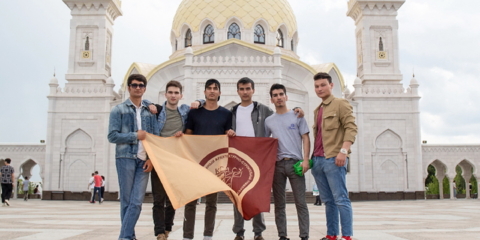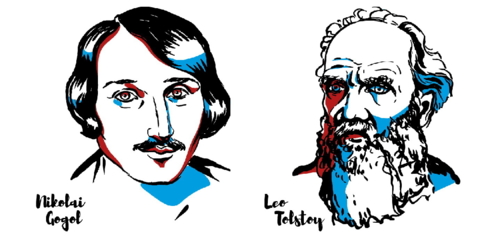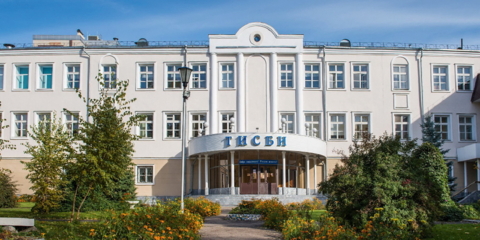4
apprenticeship programs
> 1 600
students, including > 60 international students
Data as of Jun 30, 2021
Kazan State Institute of Culture is a leading scientific center of the Middle Volga region that conducts research on the development of world culture, national cultures of the Volga region's people, library studies, socio-cultural activity, folklore, performing arts, musical art, choreography, and visual arts. Founded in 1969.
The institute shows high young people's activity and ranks second in youth policy among Kazan universities.
Faculties
- Socio-cultural Technologies and Intelligent Systems
- Higher School of Art
- Innovations and Traditions of National Art Culture
- Theater, Cinema and Television
Infrastructure
- Dormitory
- Innovative educational centers for knowledge transmission
- Library with an electronic reading room and a periodicals room
- Learning laboratories
- A large concert hall, an educational theater, dance halls
- Museum of History of Kazan State Institute of Culture
- Two sound recording studios, a TV studio, a stage, a cinema and photo laboratory
- Workshops for classes and creativity in the field of decorative and applied arts, fine arts, visual arts, classrooms for vocal and instrumental training
- Itil Sports Center
- Medical center
Science
- 5 scientific schools
- 10 research areas
- 3 dissertation councils
Kazan State Institute of Culture is a leading scientific center of the Middle Volga region that conducts research on the development of world culture, national cultures of the Volga region's people, library studies, socio-cultural activity, folklore, performing arts, musical art, choreography, and visual arts.
Popular fields of study
- Tourism
- Pedagogical Education
- Archives and Records Management. Library and Information Activity
- Arts and Humanities. Theory and History of Arts
- Cultural Studies
- National Art Culture. Socio-cultural Activity
- Acting. Dramatic Art
- Instrumental Performance. Musicology and Musical Applied Arts. Folk Singing
- Choreography
- Theater Directing. Film and TV Directing. Film Photography. Producer Business
- Decorative and Applied Arts and Crafts. Monumental Arts. Painting. Design
The programs are taught in Russian.
Bachelor’s and specialist’s programs
Document submission, full-time
- June 19 – July 14 for those taking internal exams
- June 19 – July 29 for those taking the Unified State Exams
Document submission, part-time and extramural
- June 19 – July 21 for those taking internal exams
- June 19 – July 29 for those taking the Unified State Exams
Entrance exams
- July 15 – July 29 full-time
- July 23 – July 29 part-time and extramural
Master’s programs
- June 19 – July 24 document submission
- July 25 – July 29 entrance exams
Bakhtierzoda Shakhzod Bakhtier, Tajikistan
Preparing for my university entrance exams, I was working hard and was nervous. And finally, I got a quota in Kazan. I had some difficulties, but I got over them. I adapted very well. I improved my Russian, got acquainted with quite a different culture and life. Russians are substantially different from my compatriots. For the most part, these differences are related to religious confessions. But I like living here.
Preparatory courses
- Duration: June 30 – July 10, 2021
- Tuition fee: 8,800 — 16,500 RUB
International Mother Language Day
- Russian Language Olympiad
- Intellectual game "The World of Russian Phraseology"
- Literary lounge: participants recite poems in their mother languages and Russian and Tatar poetic masterpieces
International cooperation
> 30 foreign partners
- Academic exchange with partner universities of Kazakhstan
- Joint projects with Alliance Française in the field of cinematography, choreography, and musical art
- Cooperation with the Islamic Republic of Iran in the field of cinema and photographic art, protection of cultural heritage, and book publishing
- Master classes from teachers and students in Hungary, Senegal, South Africa
- Cooperation with representatives of Vietnam and Indonesia as part of the WorldSkills world championship
Kevin D’arc, Brazil
Before entering a Russian university, I had been trying my hand in different professions and changed three faculties: political studies, visual art, IT. But my life is inextricably linked with cinema. I've been shooting since I was four years old. In 2018 I won a grant for studying in Russia.
Why did I decide to come here? I don’t know. I just took an interest in it. In the beginning, I had some difficulties and was cold. When I came to Russia, I only knew one word "privet". Russian is very difficult, but I speak it, as you can see. Local people are gloomy, but only at first glance. If you get on well with Russians, you’ll see that they are kind and sympathetic.
Internships and employment
- Students undertake internships and work placement with subsequent employment at theaters, museums, philharmonics, libraries, archives, children's music schools and art schools, youth centers, culture and leisure centers, travel agencies, TV and radio companies, motion picture companies, unions of theater workers and composers of the Republic of Tatarstan
- Every year, the institute holds a single career day with the participation of employers from Tatarstan and neighboring republics who present current job openings
- Employers take part in the learning process, final state certification, exams
Graduates work in various areas of culture, professional art, at social and government agencies, libraries and museums, theaters and clubs of Tatarstan, the Volga region, and Russia. Many of them have prestigious awards for their professional achievements. Among them are honored members of the creative community, People's Artists, scientists, educators, and eminent figures in other important areas of humanities, laureates of Russian and international contests.
Events
- International, all-Russian contests and festivals
- Research and practice conferences, webinars, intellectual competitions
- Concert programs and programs adapted for the stage, exhibitions of the degree-granting art departments' creative works
- Film festivals, photo exhibitions
- Science education lectures "Famous Scientists for Young People"
- Meet-the-Artist Events as part of the Life of Outstanding People project
Akhmajon Oev, Tajikistan
Was it difficult for you to enter a Russian university? I didn't have a lot of difficulties, but I was scared. After all, Russia was quite a different country. I was very nervous about whether I’ll be able to live and study here. I had come two months before the exams started, and I almost didn’t know Russian. My adaptation went well, but I had a language barrier. Russians differ from my compatriots. They are very serious. I think it’s because of the cold.
Now I am studying at the Faculty of Theater, Cinema, and Television. My major is Television Producing. I take part in international film festivals, events held by the Assembly and Tatarstan Peoples' Friendship Center.
Adaptation
The Psychosocial Service offers successful workshops to adapt students to a new learning environment at the university. It develops communication and confidence behavior skills, ensures students’ unity and their closer interaction.
- Stress management
- Communicative competence
- Preparation for exams
- Effective self-presentation
- Goal-setting
- Leadership qualities
- Time management
- How to pass an interview
- Creativity and me
- Self-fulfillment in creativity
- Find a common language with fellow students
- We belong together
30.06.2021





